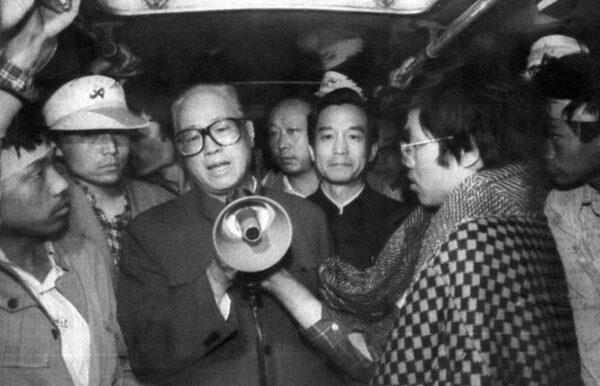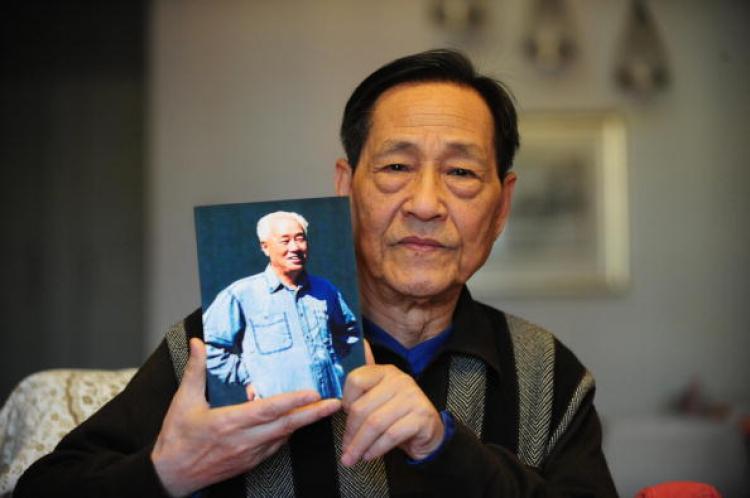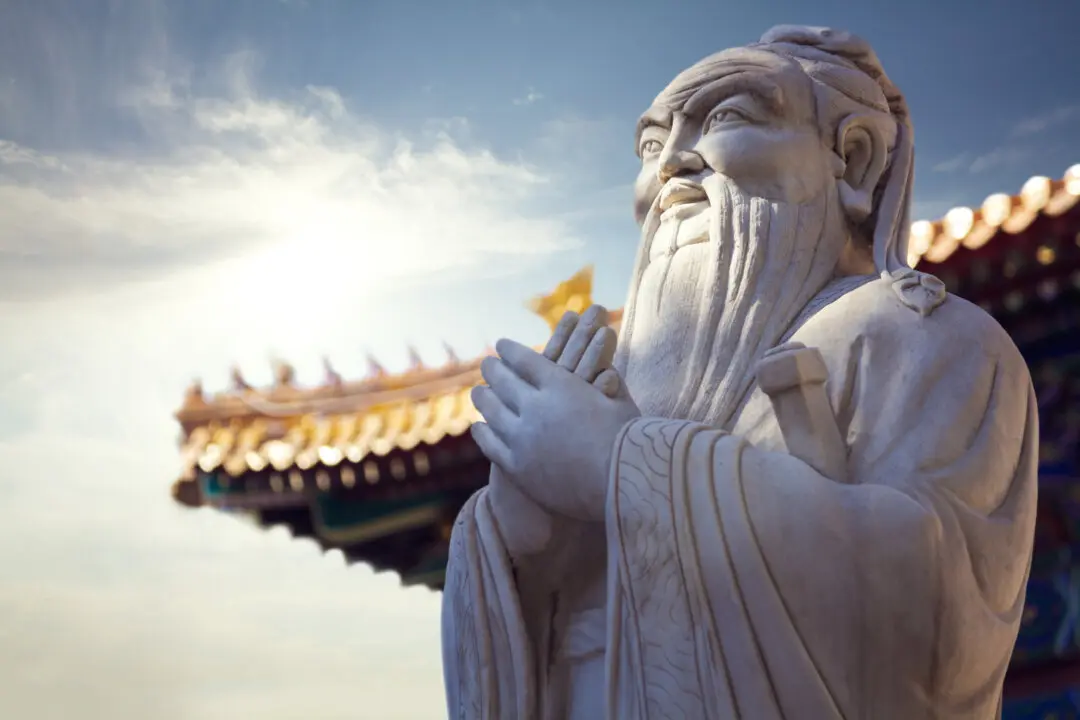Bao Tong, former political secretary of the deceased reformist party leader Zhao Ziyang, died in Beijing Wednesday, four days after his 90th birthday.
A Democratic Reformist
Bao was sympathetic to the students’ pro-democracy protest in Tiananmen Square that was suppressed by the Chinese military in 1989. He was sentenced to seven years imprisonment after the massacre and was dismissed from the Chinese Communist Party’s (CCP) central committee.Bao was born in 1932 in Haining in China’s eastern province of Zhejiang. He joined the CCP in 1949 when he was chairman of the student union at Shanghai Nanyang High School.
Since 1980, Bao had served as the political secretary of Zhao Ziyang, the then-premier and later the general party secretary. He was also a leading member of China’s Economic System Reform Commission. In 1987, he rose to become a member of the Central Committee at the CCP’s 13th National Congress and the director of its political reform office. He helped draft documents relating to China’s political and economic reforms while he was in these posts.
In 1989, Bao opposed Deng Xiaoping’s decision to use force to suppress the peaceful protest of Chinese students in Tiananmen Square, who demanded democracy and anti-corruption. Bao supported Zhao’s ideas of handling the protest peacefully in line with democracy and the rule of law.
Deng, who was Chairman of the CCP’s Central Military Commission at the time, didn’t accept Zhao’s ideas.

Bao was arrested in Beijing in May 1989 and sentenced in July to seven years in prison for “leaking state secrets” and “inciting counter-revolutionary propaganda.”
He spent the rest of his life under house arrest and surveillance after his release from prison.
Speaking Up for Falun Gong
Bao remained a sharp critic of the CCP, despite spending most of his time under house arrest and surveillance.He had spoken up for Falun Gong and condemned the CCP for its suppression of Falun Gong in China.
In 2008, retired Shandong University professor Sun Wenguan published two open letters regarding the Tiananmen Massacre and the persecution of Falun Gong. Bao expressed his support of Sun when speaking with the Chinese language edition of The Epoch Times in March 2008.
In an interview with The Epoch Times in 2015, Bao told the publication that Zhu Rongji, then Chinese premier, said that the CCP would not ban Falun Gong and that he hoped Falun Gong practitioners could have the peace of mind to continue their practice.
Falun Gong, also known as Falun Dafa, is a traditional Chinese spiritual belief comprising five slow, gentle-moving exercises and moral teachings of truthfulness, compassion, and forbearance. It was made public in China in 1992 and 70 million to 100 million Chinese were practicing Falun Gong by 1999 before the persecution.Jiang Zemin, former general secretary of the CCP, initiated a nationwide campaign to suppress Falun Gong in 1999, out of fear of the group’s popularity.
Bao said that Jiang’s persecution is “illegal.”
“Jiang’s persecution of Falun Gong is a crime against humanity,” he said, “The persecution of any citizen is the persecution of all citizens and society.”
Bao’s wife Jiang Zongcao died of cancer on Aug. 21 at the age of 90. The Chinese communist regime only allowed 30 people—former colleagues, families, and relatives—to attend her funeral, according to Bao.
In 1989, Gao was first arrested for running a series of reports on the democracy protests at Tiananmen Square while serving as deputy chief editor of Economics Weekly. She has been repeatedly imprisoned in China for her work, including on charges of “leaking state secrets.” She was named one of the 50 World Press Freedom Heroes by the International Press Institute in 2000.





